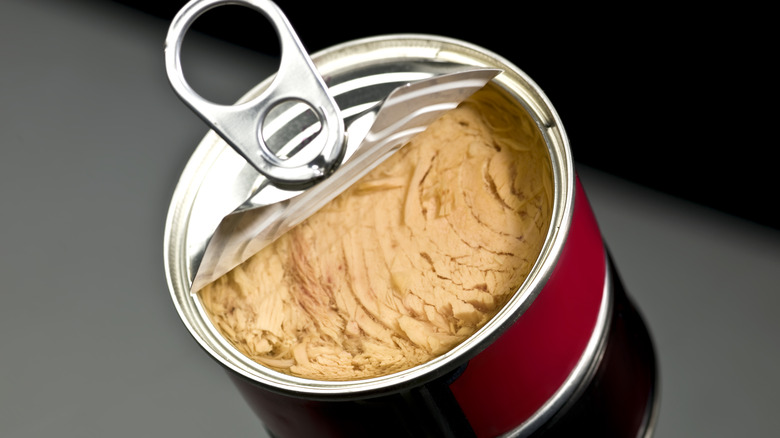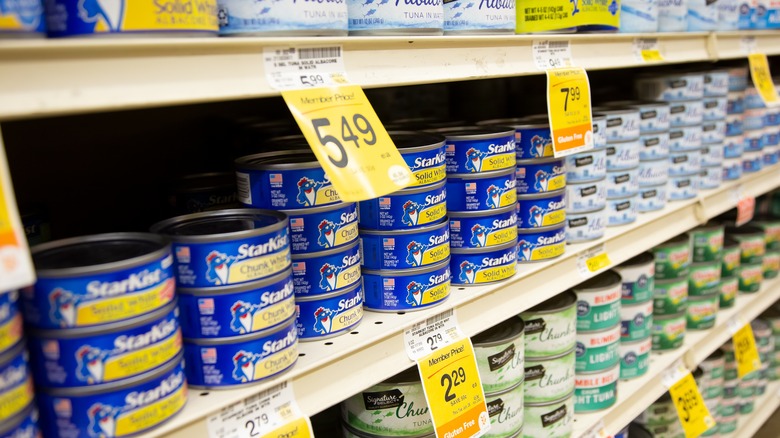Why Is Canned Tuna Always Sold In Tiny Containers?
Some things in life are so common that we never think to question them. Such is the case with grocery store canned tuna, which comes in very small cans — 5 ounces, to be exact. This is quite different from the 15.25-ounce cans of vegetables and 10.5-ounce cans of Campbell's soup that shoppers are also used to seeing. Yet a 5-ounce can of tuna is widely accepted. The unclear reason for this might lie in the market for canned fish, the functionality of small cans, and shelf life factors.
One canned tuna myth is that tuna is only good in salads, but it's great for tuna burgers, mac and cheese, and even on pizza. The 5-ounce can is ideal for a single serving, so in this regard the size makes sense. No tuna will go to waste and you won't have leftovers to keep in the fridge. An opened can of tuna will only last up to four days in the fridge, and no one wants their fridge smelling like fish.
There are larger cans of tuna on the market, but they're less common. Popular brands like Starkist and Bumble Bee offer 12-ounce versions that you might come across in stores but don't even think about seeing the massive 66.5-ounce cans bought in the food service industry. Average shoppers don't seem desperate for more 12-ounce cans, so maybe there isn't a big enough market for larger cans to make them mainstream.
Are small tuna cans more functional?
Before the 5-ounce can was common, the 6-ounce can was the standard on shelves. In the late 2000s, major tuna companies began decreasing the size to 5 ounces and soon enough, that became the new size — from small to smaller. In fact, Starkist and Bumble Bee were involved in a lawsuit that accused them of price-fixing tuna cans soon after this change was made, which settled in January of 2024.
Not only is a can of tuna small, but it's also short and wide. There could be both functional and aesthetic reasons for this. On a Reddit thread discussing this fact, one Redditor poses the theory, "I want to somehow say that 'wide' advertising is better," further explaining that a horizontal format could make reading and seeing logos easier. Similarly, when you open a wide can of tuna, you are able to see more of the product (check out this guide on the differences in canned tuna) and admire the flaky fish layers rippling before your eyes.
This brings us to the functionality. Perhaps the wide and flat qualities of the actual fish are more suitably packed into similarly wide and flat cans. Additionally, it's much easier to scoop out the contents of a shallow can than try to finesse a fork to the bottom of a narrow and tall can. Wide cans are also more stackable than narrow ones, so this could help with both shipping and storing in your pantry.

